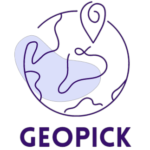Learning objectives:
At the end of the section, learners should be able to:
- Understand the scope and limitations of JS Mapping APIs, including ArcGIS Maps SDK for JavaScript, Google Maps API, and Leaflet.
- Identify and compare the various mapping functionalities and tools offered by each JS Mapping API, including 3D visualization, map data manipulation, geocoding, geolocation, routing, and user interface customization.
- Evaluate which JS Mapping API is best suited for different types of mapping projects based on their specific needs and requirements.
Introduction:
Choosing the right mapping tool can be a daunting task, especially with so many options available. That’s why we’ve created a detailed comparison table to help you make an informed decision. Our comparison table breaks down the features and functionalities of three popular mapping tools: ArcGIS Maps SDK for JavaScript, Google Maps API, and Leaflet. By comparing these tools side by side, you can easily determine which one is best suited for your specific project needs. In addition to the comparison table, we’ve also included a summary of the advantages and disadvantages of each tool. This will help you understand the strengths and weaknesses of each tool and make a more informed decision.
Let’s first state the possibilities of the currently available libraries in their latest release (as of January 2023)
Comparison Table:
Here are explanations of the meanings of the colored circles in relation to JS mapping API support:
- Green circle: This means that JS mapping API fully supports or works with a feature. In other words, it’s a “yes”.
- Yellow circle: This symbol indicates that JS mapping API supports or works with a feature, but a plugin may be needed to enable it. So it’s a “yes, but with a plugin”.
- Red circle: This means that JS mapping API does not provide any support for a feature. In other words, it’s a “no”.
Scope and limitations:
ArcGIS Maps SDK for JavaScript:
Google Maps API:
Leaflet:
Scope: ArcGIS Maps SDK for JavaScript offers a wide range of advanced mapping functionalities, including 3D visualization, advanced map data manipulation, and an extensive set of tools for customizing the user interface and overall design of the map. It also provides advanced routing capabilities and a rich set of interactive tools for panning and zooming on the map.
Scope: Google Maps API offers a powerful set of mapping functionalities, including geocoding, geolocation, and advanced routing capabilities. It also provides a rich set of tools for customizing the user interface and design of the map, as well as a seamless integration with other Google products.
Scope: Leaflet is a lightweight and flexible JS Mapping API that offers a wide range of basic mapping functionalities, including interactive panning and zooming, layer switching controls, and minimaps. It is also highly customizable and offers a rich set of tools for customizing the user interface and design of the map.
Limitations: The main limitation of ArcGIS Maps SDK for JavaScript is its complexity and relatively steep learning curve. It requires a strong background in GIS and programming skills to fully leverage its advanced features.
Limitations: The main limitation of Google Maps API is its pricing model, which can be relatively expensive for high-traffic websites. It also has some limitations in terms of advanced 3D visualization and map data manipulation.
Limitations: The main limitation of Leaflet is its relatively limited set of advanced mapping functionalities, particularly in terms of 3D visualization and advanced map data manipulation. It also has a smaller community of developers and users compared to ArcGIS Maps SDK for JavaScript and Google Maps API.
Conclusion:
In conclusion, ArcGIS Maps SDK for JavaScript, Google Maps API, and Leaflet all offer a wide range of features and functionality to help users create high-quality maps. While all three tools have similar functionalities, there are some key differences, such as the availability of 3D functionality and the overall design of the user interface. Based on the specific needs of a project, users can evaluate the comparison table to determine which tool is best suited for their needs.
References:
- Andrienko, N., Andrienko, G., & Gatalsky, P. (2003). Exploratory spatio-temporal visualization: an analytical review. Journal of Visual Languages & Computing, 14(6), 503-541. doi: 10.1016/S1045-926X(03)00046-6
- Cartwright, W., Crampton, J., Gartner, G., Miller, S., Mitchell, K., Siekierska, E., & Wood, J. (2001). Geospatial information visualization user interface issues. Cartography and Geographic Information Science, 28(1), 45-60. DOI: 10.1559/152304001782173961
- Roth, R. E. (2012). Cartographic Interaction Primitives: Framework and Synthesis. The Cartographic Journal, 49(4), 376-395. doi: 10.1179/1743277412Y.0000000019
- Roth, R. E. (2013). Interactive maps: What we know and what we need to know. Journal of Spatial Information Science, (6). doi: 10.5311/JOSIS.2013.6.105
- Roth, R. E., Donohue, R. G., Sack, C. M., Wallace, T. R., & Buckingham, T. M. A. (2014). A Process for Keeping Pace with Evolving Web Mapping Technologies. Cartographic Perspectives, 0(78), 25-52. doi: 10.14714/CP78.1273
- Roth, R. E. (2017). User Interface and User Experience (UI/UX) Design. The Geographic Information Science & Technology Body of Knowledge (2nd Quarter 2017 Edition), John P. Wilson (ed.). doi: 10.22224/gistbok/2017.2.5.
- Sack, C. (2017). Web Mapping. The Geographic Information Science & Technology Body of Knowledge (4th Quarter 2017 Edition), John P. Wilson (ed.). doi: 10.22224/gistbok/2017.4.11
- Tsou, M.-H. (2011). Revisiting web cartography in the United States: The rise of user-centered design. Cartography and Geographic Information Science, 38(3), 250-257. DOI: 10.1559/15230406382250

